Airlines, Airports and Airliners News 4 to 10 July 2022
Compiled by Willie Bodenstein
Google Banner Ad
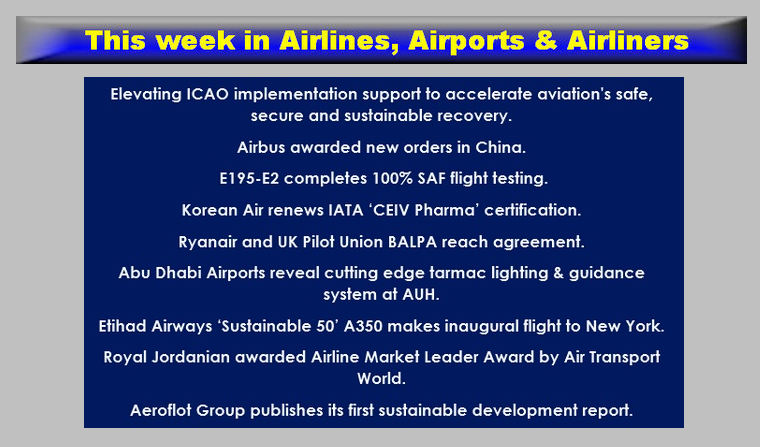
Google Banner Ad
ELEVATING ICAO IMPLEMENTATION SUPPORT TO ACCELERATE AVIATION'S SAFE, SECURE AND SUSTAINABLE RECOVERY

Significant progress towards heightening the governments' implementation of ICAO's safety, security and sustainability global plans, international standards and guidance was achieved at the ICAO Global Implementation Support Symposium, held last week.
Hosted by the Directorate General of Civil Aviation of Türkiye, the event focussed on identifying means to globally align governments' aviation recovery policies, strategies, initiatives and activities by means of enhanced partnership through and with ICAO. This is key to assuring the inclusiveness, sustainability, and resilience of the recovery of air services and the vital sustainable development benefits delivered by air transport.
The Deputy Minister of Transport and Infrastructure of Türkiye, Enver Iskurt, and ICAO Secretary General Juan Carlos Salazar, provided opening remarks. The event was also addressed by the Ministers of Transport of Angola, Ricardo Viegas D'Abreu; and of Singapore, S Iswaran. Ministers and Deputy Ministers from Nigeria, Iraq and Zimbabwe were also present at the Symposium.
"Where previously this agency had pursued standards development, and related assistance and capacity building, as quite distinct priorities, ICAO is now driving a much more integrated approach that will see implementation support aspects holistically informing new standards, practices and policies from the moment they begin being researched," declared Secretary General Salazar.
Many ICAO Member States lack the basic funding needed to develop and sustain their civil aviation organisations, infrastructure and skilled human resources. In this context, the Secretary General further presented the organisation's key priorities as it undertakes this implementation support focused transformation: achieving a needs-based approach, expanding funding and expertise resource partnerships, and fostering innovation.
A number of agreements were reached between ICAO and aviation stakeholders during the event that will contribute towards these objectives. Memoranda of Understanding on co-operation with Airports Council International and the United Kingdom Civil Aviation Authority International will contribute to the deployment of implementation support activities, including ICAO's implementation packages (iPacks).
Addressing human resources priorities, an agreement with the Qatar Civil Aviation Authority also provides a platform for contributions to ICAO's Gender Equality Training Program. Additionally, 18 TRAINAIR PLUS Member civil aviation training centres were recognised in a ceremony held on the side of the Symposium.
Looking forward, ICAO's implementation support delivered through the Organisation's implementation pillar, the Technical Co-operation Bureau (TCB), will prioritise an inter-active dialogue with States to better understand the evolving situations, needs and priorities. A focus on results-oriented programmes, projects, products and other activities, and the optimisation of all resource mobilisation opportunities to benefit States will call upon ICAO to further strengthen its partnership endeavours.
AIRBUS AWARDED NEW ORDERS IN CHINA
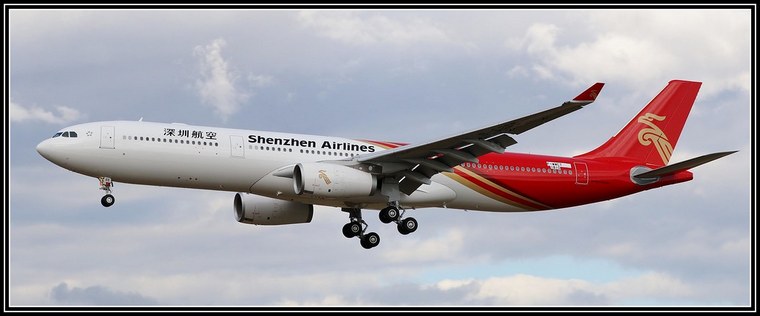
Airbus confirms the signature of orders with Air China, China Eastern, China Southern, and Shenzhen Airlines for a total of 292 A320 Family aircraft, demonstrating the positive recovery momentum and prosperous outlook for the Chinese aviation market. Once the relevant criteria are met, these orders will enter the backlog.
"These new orders demonstrate the strong confidence in Airbus from our customers. It is also a solid endorsement from our airline customers in China of the performance, quality, fuel efficiency and sustainability of the world's leading family of single aisle aircraft." said Christian Scherer, Airbus Chief Commercial Officer and Head of International. "We commend the excellent work by George Xu and the entire Airbus China team as well as our customers' teams for having brought to conclusion these long and extensive discussions that have taken place throughout the difficult COVID pandemic."
By the end of May 2022, the in-service Airbus fleet with Chinese operators totalled over 2,070 aircraft.
The A320neo Family incorporates new generation engines and Sharklets, which together deliver at least 20 percent fuel and CO2 savings, as well as a 50 percent noise reduction. The A320neo Family offers unmatched comfort in all classes and Airbus' 18-inch wide seats in economy as standard.
At the end of May 2022 the A320neo Family had totalled more than 8,000 orders from over 130 customers. Since its Entry into Service six years ago, Airbus has delivered over 2,200 A320neo Family aircraft contributing to 15 million tons of CO2 saving.
Google Block Ad
Google Block Ad
E195-E2 COMPLETES 100% SAF FLIGHT TESTING
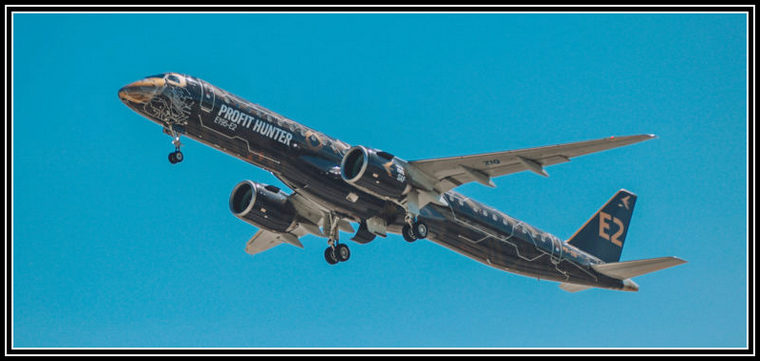
Embraer and Pratt & Whitney have successfully tested a GTF-powered E195-E2 aircraft on 100% Sustainable Aviation Fuel (SAF). The test, with one engine running on 100% SAF, validated that GTF engines and the E-Jets E2 family can fly on both engines with blends of up 100% SAF without any compromise to safety or performance. The aircraft completed two days of ground tests at Fort Lauderdale International Airport, culminating in a 70-minute flight test at Vero Beach Regional Airport in Florida.
"The E2 is already the most efficient single aisle aircraft flying today, saving up to 25% CO2 emissions compared to previous generation aircraft. This reduction in emissions can be increased up to an impressive 85% with 100% SAF. Replacement of older aircraft by new generation products and scaling up SAF production are the two most effective actions commercial aviation can take now to achieve a significant reduction in emissions," said Rodrigo Silva e Souza, Vice President Strategy and Sustainability, Embraer Commercial Aviation. "Embraer and Pratt & Whitney are leading the industry with products that are more efficient for our customers and more sustainable for our society. This test demonstrates that the E2 is ready for 100% SAF certification and operation once the industry finalises standards."
All Pratt & Whitney engines and Embraer aircraft are currently certified to operate with SAF blended up to 50% with standard Jet A/A1 kerosene, according to ASTM International specifications. Future specifications will enable blends of up to 100% SAF to maximise the emissions reduction potential of using fuel derived from sustainable, non-fossil-based feedstocks.
"SAF is a core part of our sustainability road map, and we continue to work with industry partners and regulators to support the development of a drop-in standard for 100% SAF," said Graham Webb, Chief Sustainability Officer at Pratt & Whitney. "This test proves that GTF engines can operate on any fuel, and that the E-Jets E2 family is ready for 100% SAF certification once the industry finalises the standard for unblended SAF."
The SAF used by Embraer and Pratt & Whitney was 100% Hydro-processed Esters and Fatty Acids Synthetic Paraffinic Kerosine (HEFA-SPK) acquired from World Energy. HEFA-SPK is a specific type of hydro-treated renewable feedstock fuel used in aviation and is considered a leading alternative replacement for conventional jet fuel by the Commercial Aviation Alternative Fuels Initiative (CAAFI), due to the sustainability of its feedstock.
The Pratt & Whitney GTF™ engine is the only geared propulsion system delivering industry-leading sustainability benefits and world-class operating costs. The Embraer E195-E2 powered by GTF engines represent the most environmentally friendly combination of airframe and engine delivering the lowest level of noise and emissions.
KOREAN AIR RENEWS IATA 'CEIV PHARMA' CERTIFICATION

Korean Air has once again received certification from IATA's Center of Excellence for Independent Validators Pharma (CEIV Pharma), demonstrating its highest service quality and expertise in pharmaceutical transportation.
IATA's "CEIV Pharma" is an international standard that recognises an airline's capability to manage pharmaceuticals. More than 280 checklists, including transportation handling procedure, storage facilities, equipment, and the ability to adhere to regulations, are evaluated by air cargo transportation experts for certification.
Valid for three years, IATA certification requires a demanding evaluation of the airline's capabilities. After the initial certification in 2019, Korean Air formed a task force in February this year in preparation for recertification.
With over fifty years of experience and expertise in cargo transport, Korean Air provides customised cold chain services for a wide array of products that call for dynamic requirements and conditions. The airline is an expert at safely transporting cargo from the start to the end of the journey, maintaining optimal temperature conditions. The airline is able to transport pharmaceuticals such as vaccines, lab re-agents and serums, and fresh products including flowers, fruits, seafood, through its "Specialised-Pharma" and "Specialised-Fresh" services.
Through a joint investment with Incheon International Airport Corporation, the airline operates a "Cool Cargo Center" at the airport's Terminal 2. Constructed in September 2021, the facility significantly improved the service quality of temperature-sensitive cargo by minimising exposure to adverse environments and by reducing unnecessary movement and traffic.
The customised special cargo services facilitated the transport of emergency quarantine supplies over the course of the pandemic. Korean Air, in close co-operation with the Korean Ministry of Land, Infrastructure and Transport (MOLIT), and the Korea Centres for Diseases Control and Prevention - formed a vaccine task force for safe and efficient transportation of COVID vaccines. More than 100 million doses of vaccines have been shipped to date, and the airline continues to transport emergency medical supplies - from COVID treatments and diagnostic kits - around the world.
Through the recertification of CEIV Pharma, Korean Air expects to enhance customer service quality and strengthen its competitive advantage in the global air cargo market.
Google Block Ad
RYANAIR AND UK PILOT UNION BALPA REACH AGREEMENT
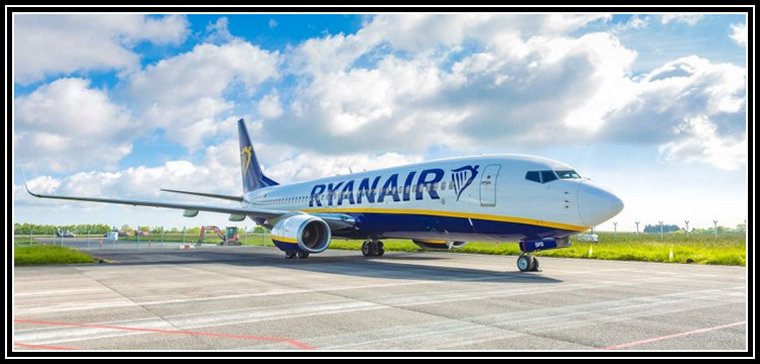
Ryanair has today (30 June) welcomed the outcome of the ballot on post-Covid pay restoration for Ryanair's UK pilots, which will accelerate pay restoration and deliver pay increases post restoration to 2026.
This year the airline will grow to 115% of its pre-Covid capacity and is prioritising the early restoration of pay for its people through these re-negotiated agreements to keep jobs secure and to have a foundation for growth. This new accelerated deal also provides for pay enhancements and other benefits beyond full restoration of pay for Ryanair's UK pilots until 2026.
Ryanair's People Director Darrell Hughes said:
"We welcome the outcome of this ballot of our UK pilots which has shown strong support for the agreement negotiated with BALPA.
While the recovery from the impact of the pandemic is still ongoing and our industry faces significant challenges, this long-term agreement delivers stability, accelerated pay restoration, future pay increases and other benefit improvements for our UK pilots.
While 100% of our pilots across our European network are covered by 2020 Emergency Agreements, we continue to work with our pilots and their unions on new deals, similar to this one concluded with BALPA, and have successfully re-negotiated improved long-term agreements with 70% of our pilots, running until 2026 or 2027 as we prioritise pay restoration."
ABU DHABI AIRPORTS REVEAL CUTTING EDGE TARMAC LIGHTING & GUIDANCE SYSTEM AT AUH

Abu Dhabi Airports revealed its Advanced Surface Movement Guidance and Control System (A-SMGCS) at Abu Dhabi International Airport (AUH). The system is the first and most progressive of its kind in the Middle East and the latest example of the aviation company's drive to use the latest technology to offer its passengers enhanced safety, efficiency and sustainability to deliver a seamless travel journey.
However, this new technology is not only for the benefit of passengers. Airfield guidance and control systems are used to illuminate runways at night or in low visibility conditions, like fog, to ensure pilots can easily identify the runway, take off and touchdown areas, as well as any potential obstructions on the airfield.
The new A-SMGCS Level 4 system, designed by industry-leading airport solution provider ADB SAFEGATE, enables conflict resolution and automatic planning and guidance under all weather conditions, which also improves situational awareness for tower control employees as well as pilots.
The new system will reduce plane taxi timings as well as reduce forced diversions due to bad weather, benefiting passengers and mitigating associated cost for airlines. It further upscales the airport's capacity whilst reducing power consumption and ensures minimal maintenance downtime. The system is equipped with 'Follow the Greens' technology which enables intelligent and sustainable routing and guidance by automatically illuminating only the lights needed to guide a specific aircraft to its designated gate.
"Our drive to excel and be progressive is a constant that mirrors the drive and ambition of our Emirate and the aviation sector. Our goal is to ensure that all of our airports offer state-of-the art technology to power efficiency, growth and increase our contributions to the Emirate's economy," commented H.E. Sheikh Mohammed bin Hamad bin Tahnoon Al Nahyan, Chairman, Abu Dhabi Airports.
"Abu Dhabi International Airport is the gateway to Abu Dhabi. We take that responsibility seriously and, as a result, we deploy leading edge systems that improve operational resilience, customer convenience and drive traffic growth while limiting our impact on the environment. This system does it all and we are thrilled to launch it today with our valued partners," added Shareef Hashim Al Hashmi, CEO, Abu Dhabi Airports.
Prior to installing the system Abu Dhabi Airports worked on a five-phased project approach which included a comprehensive audit, design and upgrade of the airfield ground lighting and infrastructure, the control and monitoring system, tower systems and integration to automate ground movement.
"We are grateful to Abu Dhabi Airports for the opportunity to bring our latest technologies to this prestigious project serving the main airport for the capital of the UAE. We look forward to continuing to support Abu Dhabi Airports under our long-term maintenance contract, meeting their high standards and embracing their culture of quality, efficiency and sustainability," said Laurent Dubois, CEO, ADB SAFEGATE.
Google Banner Ad
ETIHAD AIRWAYS 'SUSTAINABLE 50' A350 MAKES INAUGURAL FLIGHT TO NEW YORK
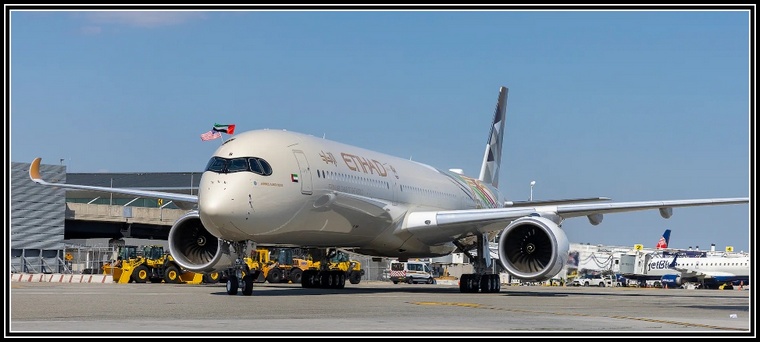
Etihad Airways celebrated the arrival of its new Airbus A350-1000 in the United States following the inaugural commercial flight from Abu Dhabi International Airport (AUH) to New York's John F. Kennedy International Airport (JFK) on 30 June. The aircraft, which accommodates 371 passengers, is one of five new Airbus A350s to join Etihad's fleet this year.
All Etihad flights servicing New York and Chicago O'Hare International Airport will be operated by the A350, joining Mumbai and Delhi routes that began flying in April this year.
Etihad passengers travelling to the US have access to Etihad's US pre-clearance, the only United States Customs and Border Protection facility in the Middle East. This allows passengers bound for the United States to process all immigration, customs and agriculture inspections in Abu Dhabi before they board their flight, avoiding immigration and queues on arrival in the US.
"We are proud to bring the Airbus A350 into service in the US. This is an incredible aircraft with highly efficient fuel consumption and CO2 savings, which enables us to support our goals to reduce carbon emissions and deliver an unmatched flight experience for our guests," said Martin Drew, Senior Vice President Global Sales and Cargo, Etihad Airways. "By introducing the A350, we have almost doubled premium capacity on our New York and Chicago routes to 44 seats in the Business cabin, which provides a luxurious experience comparable to First Class on other international airlines."
Formed as a partnership between Etihad, Airbus and Rolls Royce in 2021, the Sustainable50 programme will make use of Etihad's A350s as flying testbeds for new initiatives, procedures and technologies to reduce carbon emissions. This will build on the learnings derived from Etihad's similar Green-liner programme for the Boeing 787 aircraft type.
The Rolls-Royce Trent XWB-powered Airbus A350 is one of the most efficient aircraft types in the world, with 25% less fuel burn and CO2 emissions than previous-generation twin aisle aircraft.
Etihad recently established a formal framework with Airbus to collaborate on sustainability across a number of areas, including the promotion and commercialisation of sustainable aviation fuel, waste and weight management, and the development of data-driven analysis.
The aircraft features Etihad's newest cabin interior, which is inspired by Abu Dhabi and is both more efficient and sustainable in design. Etihad is renowned for high-quality aircraft, and the A350 is filled with thoughtful design details providing exceptional comfort and enhanced privacy.
Etihad's signature lighting design is inspired by the shadows cast by Abu Dhabi's palm trees. The cabin lighting emulates natural ambient light and is designed to enhance the guest experience, provide an optimum environment for sleeping and reduce the effects of jetlag. The Airbus A350 also offers the quietest cabin experience for a wide-body aircraft.
Another feature to help reduce light pollution, and therefore jetlag, is the new dark-mode interface on the E-BOX inflight entertainment system. Mobile and Wi-Fi connectivity is also available throughout the aircraft.
ROYAL JORDANIAN AWARDED AIRLINE MARKET LEADER AWARD BY AIR TRANSPORT WORLD
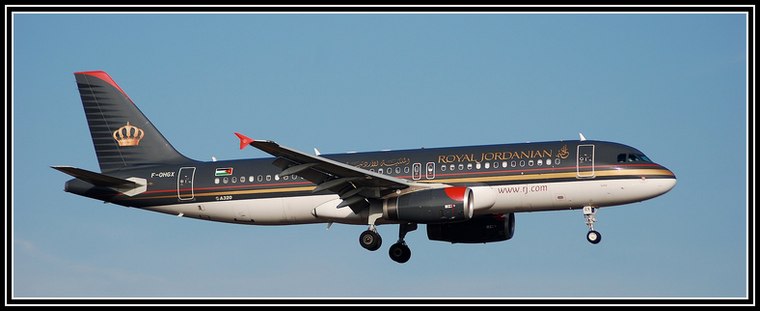
Aviation Week Network's Air Transport World (ATW) is the leading media brand serving the information needs of the global airline and commercial air transport communities.
Royal Jordanian's Vice Chairman/CEO Samer Majali received the award in Doha at a gala dinner held to announce the Airline Industry Achievement Awards Winners.
Majali said: "We are thrilled to be recognised on a global scale by ATW as the Airline Market Leader, given that ATW awards are among the most coveted in the air transport industry, recognising excellence in airline operations."
RJ was honoured by this award for its strong performance and for transforming into reality its vision to be the airline of choice connecting Jordan and the Levant with the world. The airline runs an operating plan that supports this vision and aims to increase its market share in the region, by offering its customers in the Levant a varied route network with enhanced connectivity. This operating plan makes RJ a preferred airline for passengers and a leading carrier in the region. The airline leverages Jordan's location to attract travellers seeking a rich tourism experience, whether religious, eco & adventure, wellness or history & culture.
AEROFLOT GROUP PUBLISHES ITS FIRST SUSTAINABLE DEVELOPMENT REPORT
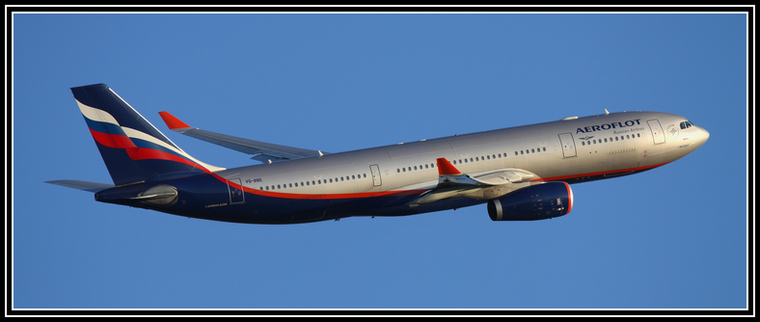
PJSC Aeroflot publishes its first report on activities in the field of sustainable development. Previously, aspects related to ESG (activities in the field of ecology, social issues and corporate governance) were disclosed in the form of integrated reports as part of the annual report.
They reflected a significant contribution to the development of the country's economy, ensuring transport accessibility of regions and mobility of the population, which the Company ensured throughout its activities, as well as systematic work on improving the efficiency of operations and activities aimed at taking care of the well-being of employees. This year, Aeroflot Group has presented its first report on activities in the field of sustainable development prepared in accordance with the main version of the standards of the Global Initiative for Reporting on Sustainable Development (GRI Standards). The report reveals the Group's approach to managing sustainable development issues and demonstrates the impact of the Group's operations on the environment as well as on the economy and society as a whole.
The key and unconditional priority of the Aeroflot Group is safety in every process and division. Therefore, the Group is constantly working to improve flight safety and aviation security, passenger data security and information security as well as monitoring the provision of safe working conditions for personnel. During the pandemic, Aeroflot Group provided delivery of vaccines, significantly modified maintenance procedures in order to ensure the safety of the health of passengers and crews during the flight, and also took pro-active steps to encourage employees and passengers to vaccinate.
Aeroflot Group makes an important contribution to the social and economic development of the country connecting 68 Russian cities. In order to improve ties with hard-to-reach Russian regions and increase the mobility of the population, the Group is implementing a program of flat tariffs. In 2014, in order to develop low-cost transportation, the Group launched the first Russian low-cost airline Pobeda, which has become one of the most efficient and fastest-growing low-cost carriers in the history of aviation. The Group's operations stimulate the economic development of the regions and cities, and promote business development within its supply chain, as well as the result of passenger flights.
Aeroflot Group pays great attention to reducing the adverse effect on the environment. For the period from 2009 to 2019, the Group managed to reduce the specific CO2 emissions from air travel by 34.0% through the use of high-performance aircraft and conservation programs, improving the fuel efficiency and environmental protection. In some segments, the company was able to become even more environmentally efficient. In 2021, Pobeda Airlines became one of the greenest companies in Europe in terms of CO2 emissions - 61.1 g/pcm.
Aeroflot Group plays an important role in the development of domestic high tech, in particular the aircraft industry being the main operator of Russian aircraft. At the end of 2021, the Group's fleet consisted of 76 Sukhoi Superjet 100 aircraft. Aeroflot Group also plans to replenish the fleet with MS-21 aircraft.
Aeroflot Group as a socially responsible company, understands the importance of participating in charity projects and does everything possible to help people in need. Among the Group's charitable initiatives is assistance to orphanages, set-up of educational programs as well as the implementation of the Miles of Mercy project, which allows passengers to donate miles received from flights to charitable foundations. The Group also pays attention to sponsorship projects.
Aeroflot Group's Sustainable development report addresses itself to various audiences: customers, business partners, shareholders and investors, employees, the public, state and municipal authorities as well as other interested persons and organisations.
Google Banner Ad

|
                   |























